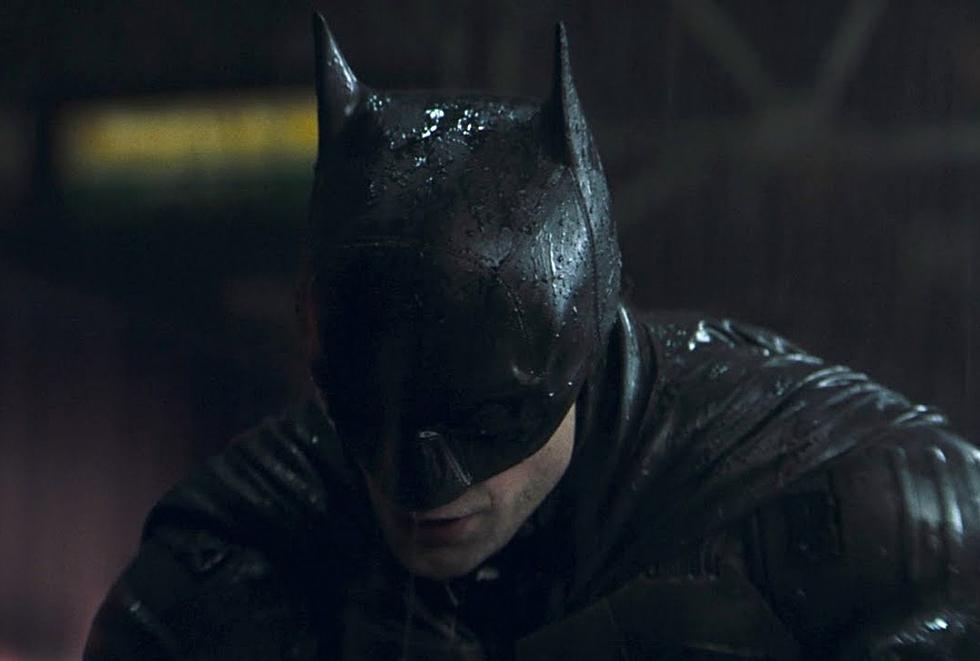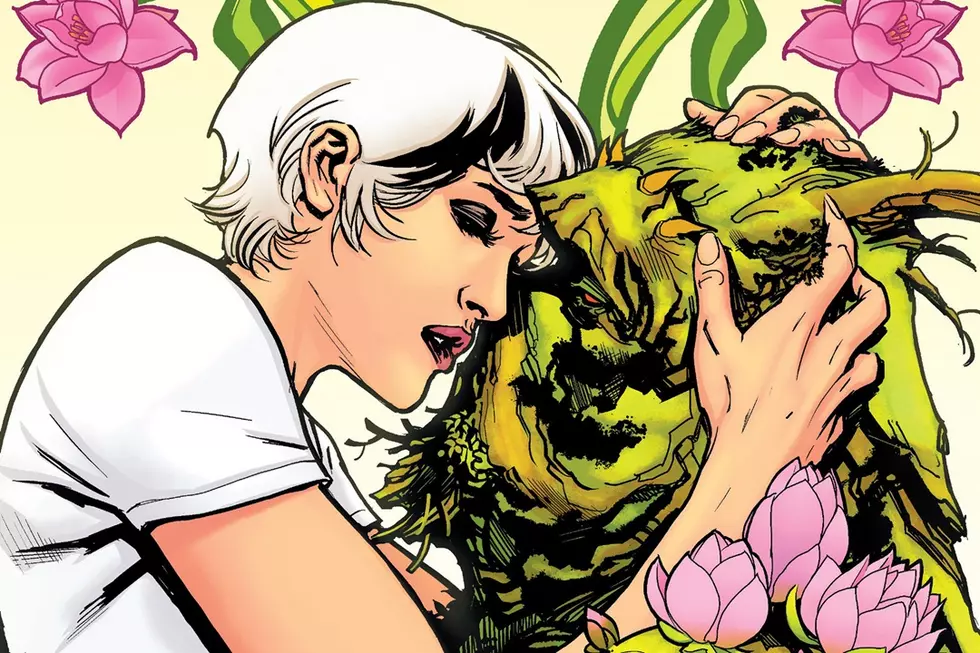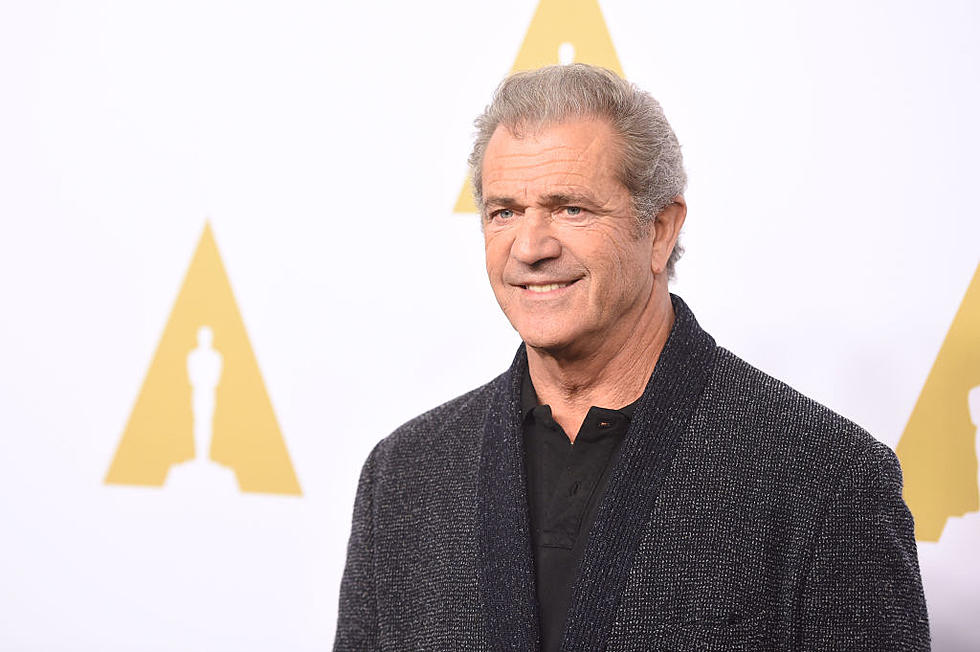
Ask Chris #16: Comics, Politics and the Suicide Squad
Here at ComicsAlliance, we value our readership and are always open to what the masses of Internet readers have to say. That's why we've given Senior Writer Chris Sims the punishment pleasure of stepping into the grand tradition of the Answer Man as he responds to your reader questions!

A: It's almost inconceivable for me to think that comics didn't influence my politics in at least some way. I mean, they've influenced pretty much everything else about me, from my job all the way down to the way I talk to my friends -- as unforgivably nerdy as it may be, when my "Awesome Hospital" co-writer Chad got married, my pals and I didn't call it "Chad's wedding," we called it "Chad #500: The Wedding Issue."
 Even so, when I try to think of specific things about comics that would've shaped my political views, I can't really put a finger on much. I mean, despite my love of Batman and the Punisher, I'm pretty sure I'd come out against real-life costumed vigilantes (although I imagine I'd be more in favor of it if the alternative was being poisoned by a clown), and while I do think the inspirational speeches that Captain America gives about the nature of the American Dream are really moving, it's more because I already believe that stuff. I didn't come to a lot of comics until after most of my political opinions had formed.
Even so, when I try to think of specific things about comics that would've shaped my political views, I can't really put a finger on much. I mean, despite my love of Batman and the Punisher, I'm pretty sure I'd come out against real-life costumed vigilantes (although I imagine I'd be more in favor of it if the alternative was being poisoned by a clown), and while I do think the inspirational speeches that Captain America gives about the nature of the American Dream are really moving, it's more because I already believe that stuff. I didn't come to a lot of comics until after most of my political opinions had formed.
I will, however, cop to the fact that the one issue of "Cap" that I did have as as kid that dealt with political issues -- the Kirby issue where Cap and the Falcon infiltrate a gang of separatists, and a giant disembodied head on a TV screen (where the background is an American flag with the stars replaced by a hangman's noose) commands an angry mob to rip a strung-up effigy of a "freedom freak" limb from limb and beat it with pipes -- scared the living hell out of me, though that was less about the political implications of the story and more because I was six years old and completely unprepared for Jack Kirby to blow my mind.
But whether or not it influenced my development or just reinforced what was there, there is a comic that shaped the way I think about a lot of stuff, and I don't think anyone's going to be surprised here when I say it's The X-Men. I don't talk about it as much as my other favorites, but when I was a kid, there were three comics that I read over and over and over again: "Untold Legend of the Batman," "The Very Best of Spider-Man" (which contained both "The Final Chapter" and "Whatever Happened to Crusher Hogan") and a black-and-white paperback that collected the Chris Claremont / John Byrne story where the X-Men fought Arcade. I must've read that thing a hundred times, and because of that, I developed the kind of love for the X-Men that only a kid can have.
I don't talk about it as much as my other favorites, but when I was a kid, there were three comics that I read over and over and over again: "Untold Legend of the Batman," "The Very Best of Spider-Man" (which contained both "The Final Chapter" and "Whatever Happened to Crusher Hogan") and a black-and-white paperback that collected the Chris Claremont / John Byrne story where the X-Men fought Arcade. I must've read that thing a hundred times, and because of that, I developed the kind of love for the X-Men that only a kid can have.
I don't think anyone needs me to tell them this, but while Marvel perfected the idea of the outsider hero with the Thing and Spider-Man, the X-Men took it to a completely different level by expanding that metaphor to encompass a whole race, specifically once the book got relaunched by Claremont, Byrne, Len Wein and Dave Cockrum. I don't think it's a coincidence that a book where the protagonists were literally identified as a race was created during the height of the Civil Rights movement, but once the international team of "New" X-Men arrived, the message was solidified: A group of people who were different from each other in virtually every respect, uniting not just for their own benefit, but for the benefit of a world that hates and fears them. As cheesy as that might sound to readers who have heard it a million times, that's an incredible hook.
From there, the political implications were barely even subtext: Not only were the protagonists of the book a different race, they were a literal oppressed minority, and the people who hated them for no better reason than they were different or who allowed their fear to get the best of their humanity were the villains in no uncertain terms. That's a powerful message, especially when it's being wrapped up and given to children. Kids can be pretty unforgiving of differences, and while not every child came away from reading about Wolverine with the message that our differences make us special, there were plenty on both sides of that equation that either learned a life lesson from the X-Men or took solace in the fact that their heroes had to deal with it too.
 Which is another thing that makes it such an important metaphor: It's fictionalized in the world of comics just enough to be adaptable. Way back when the ComicsAlliance staff did our roundtable of "Second Coming," I talked about how depressing it was that as much as I want to see them advance, the X-Men are always going to have to have that aspect of being persecuted because there's always going to be real-life persecution they can symbolize.
Which is another thing that makes it such an important metaphor: It's fictionalized in the world of comics just enough to be adaptable. Way back when the ComicsAlliance staff did our roundtable of "Second Coming," I talked about how depressing it was that as much as I want to see them advance, the X-Men are always going to have to have that aspect of being persecuted because there's always going to be real-life persecution they can symbolize.
But the flipside to that is that people are always going to have the X-Men to identify with and learn from. They work whether the issues being addressed are explicitly metaphors for race (the Holocaust imagery of the Sentinels and mutants being rounded up into camps) or sexuality (the anti-mutant religious leaders of "God Loves, Man Kills" certainly read a lot like the bigots who literally want to outlaw homosexuality) or just a more general symbol of oppression. The franchise has a pretty well-deserved reputation for getting bogged down with the intricacies of its own minutiae, but underneath all the alternate futures and cybernetic arms and memory implants and Fake Xorns and alien bird-people, that core idea is still there, and still relevant and gripping. It can still teach us something, and considering the franchise's enduring popularity, it still is.
Also, I love any comic where dudes beat the crap out of Nazis. Because screw those guys.
 Q: What are your 5 favorite moments in Suicide Squad? --Michael, via email
Q: What are your 5 favorite moments in Suicide Squad? --Michael, via email
A: Normally, when people tell me I "forgot" something in one of my columns it's just a matter of me not including something they wanted me to or ending a Top Ten list after ten entries instead of the 11th they can't believe I didn't include. In this case, though, my memory did slip: When I listed off my all-time favorite runs in last week's Ask Chris, I totally forgot about John Ostrander's 66-issue run as the writer of "Suicide Squad," easily the best ongoing series DC was putting out in the '80s.
For those of you who haven't had the pleasure of reading it, it's essentially the "Dirty Dozen" in comic book form: Super-villains are given the chance to commute their sentences by going on suicide missions (hence the title) for the government, with the overarching hook being that someone dies in every story arc. It's phenomenal stuff, and it's the direct predecessor of books like Greg Rucka's "Checkmate" and Gail Simone's "Secret Six," and despite having never been reprinted (though a Showcase has been solicited twice without ever actually coming out), it's one of the true cornerstones of the modern DC Universe.
As for my favorite moments in the series itself, I flipped through my run and found five great moments from the first half:

#5. Oracle
In one of the series' more prominent contributions to the DCU, "Squad" was where Barbara Gordon made her first post-"Killing Joke" appearance as Oracle. Her role here was what led directly to her role as both the mastermind of Grant Morrison's "JLA" and, through Ostrander's strong character work, led to her being able to carry "BIrds of Prey."

#4. Apokolips
One of the nice things about a book built around disparate characters coming together is that it can lead to some pretty interesting things, like when Lashina (under the identity of "Duchess," an amnesiac metahuman) dragged half the squad to Darkseid's planet of Apokolips in order to regain her position in the Female Furies. And if that makes sense to you, congratulations: You've read some Jack Kirby comics.
In either case, one of the best moments of the story happens when the extremely arrogant Count Vertigo decides to smack-talk Kanto, the personal assassin of a guy who can kill you just by looking at you, unleashing the full-force of his powers... and then getting stabbed on the very next page.

#3. Captain Boomerang vs. Zombies
Since the book focused on villains as its protagonists, Ostrander was able to develop them in ways that their own titles (or rather, the titles starring their arch-enemies) never had, and in some cases, he was able to pull it off with an incredible sense of humor. Captain Boomerang, for instance, earns his freedom by surviving missions on the Squad, but then decides to commit crimes while dressed as Mirror Master, only to be captured and pressed into Squad service under both of his identities, and sent to fight zombies in an elaborate con to teach him a lesson about why you don't lie to Amanda Waller.

#2. Deadshot
More than any other character, though, it was Deadshot who was revitalized in "Suicide Squad." Steve Englehart and Marshall Rogers may have brought him back after decades in limbo, but Ostrander made him the breakout star of the book, and everyone since has been building off of his characterization as a nihilistic, pragmatic assassin with a death wish.
In one pivotal story, Squad member Rick Flag goes rogue in order to keep the task force's secret by killing a senator who's about to reveal their existence. Amanda Waller sends the Squad out to stop Flag by any means necessary, and Deadshot's solution is to kill the senator himself, because Flag can't kill him if he's already dead, for the sole reason that he likes Flag more than the senator. Ice cold.

#1. Amanda Waller vs. Batman
It shouldn't come as any surprise that my favorite "Suicide Squad" moment involves Batman, but it's actually less about him and more about Amanda Waller, the Squad's director. She's shown up everywhere from the aforementioned "Checkmate" to "Justice League Unlimited" to "Smallville," and her defining moment is right here in "Suicide Squad" #10.
Batman figures out what's going on, and as he spends most of his time trying to put super-villains in jail, he doesn't really approve of a program that lets them out. And he's Batman: Unstoppable force. But Amanda Waller is the immovable object, and she essentially stares him down with the threat of exposing his secret identity, and he backs off. He comes back a few issues later with the Justice League in tow (he's still Batman, after all), but it establishes Waller in a way that's hard to pull off, building her up by having her "defeat" Batman without throwing his character under the bus. It's good stuff.
Like I said, it's yet to be collected, although Ostrander did a solid follow-up called "From The Ashes" a few years ago that's available, and a quick check of Amazon reveals a non-Showcase trade paperback called "Trial By Fire" set to hit shelves in February 2011. It's a hard run to put together, but it's worth it.
I mean, if I'd gotten to the second half of the run, I could've talked about the on-panel death of Grant Morrison!
And now, a few quick hits:
Q: I was big into Marvel in the 1990s, but I'm largely out of touch with this decade. What should I read to jump back in? --beeandcat
A: They don't really have much in common with what Marvel was doing in the '90s, but if you're looking for a few good Marvel titles to jump on, I'd recommend "Atlas." You can jump on the current series pretty easily, but for the backstory, check out the original "Agents of Altas" mini-series, which was released in paperback with a ton of bonus material, including reprints of the Golden Age stories that introduced the characters.
You could also do a heck of a lot worse than to check out what Greg Pak and Fred Van Lente have been doing on the Hulk and Hercules books for the past few years. Pak gets started in "Planet Hulk," which leads into "World War Hulk," which is where "Incredible Hulk" makes the change to "Incredible Hercules" and becomes one of my favorite comic books ever.
It's less complicated than it sounds.
Q: Who wins in a Falls Count Anywhere match, Anita Blake or Tarot? --WBXylo
A: Considering that Tarot actually does stuff, she's got the advantage in anything that isn't a Stand-Around-Waiting match.
Q: For my entire life, if I've had a son I've wanted his first name to be Bruce, middle name Wayne, but I just realized that Bruce Wayne's parents are MURDERED. Am I dooming myself if I name a child this? Should I do it anyway? --bradcandoit
A: As Jordan White told me, you need to ask yourself how committed you are to making Batman a reality.
Q: In your opinion, has there ever been an Aliens or Predator story worth reading? --sadlyhilarious
A: Nope. But "RoboCop vs. Terminator" is awesome!

Seriously. I didn't believe it either, but it's Frank Miller and Walter Simonson doing a story where reality is changed by time travel at least four times and it all makes perfect sense.
That's all we've got for this week, but if you'd like to have your question answered on ComicsAlliance, tag it on twitter with "#askchris" or send us an email with "Ask Chris" in the subject line!
More From ComicsAlliance









